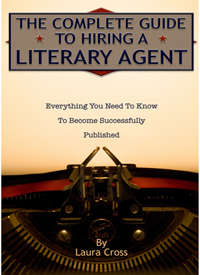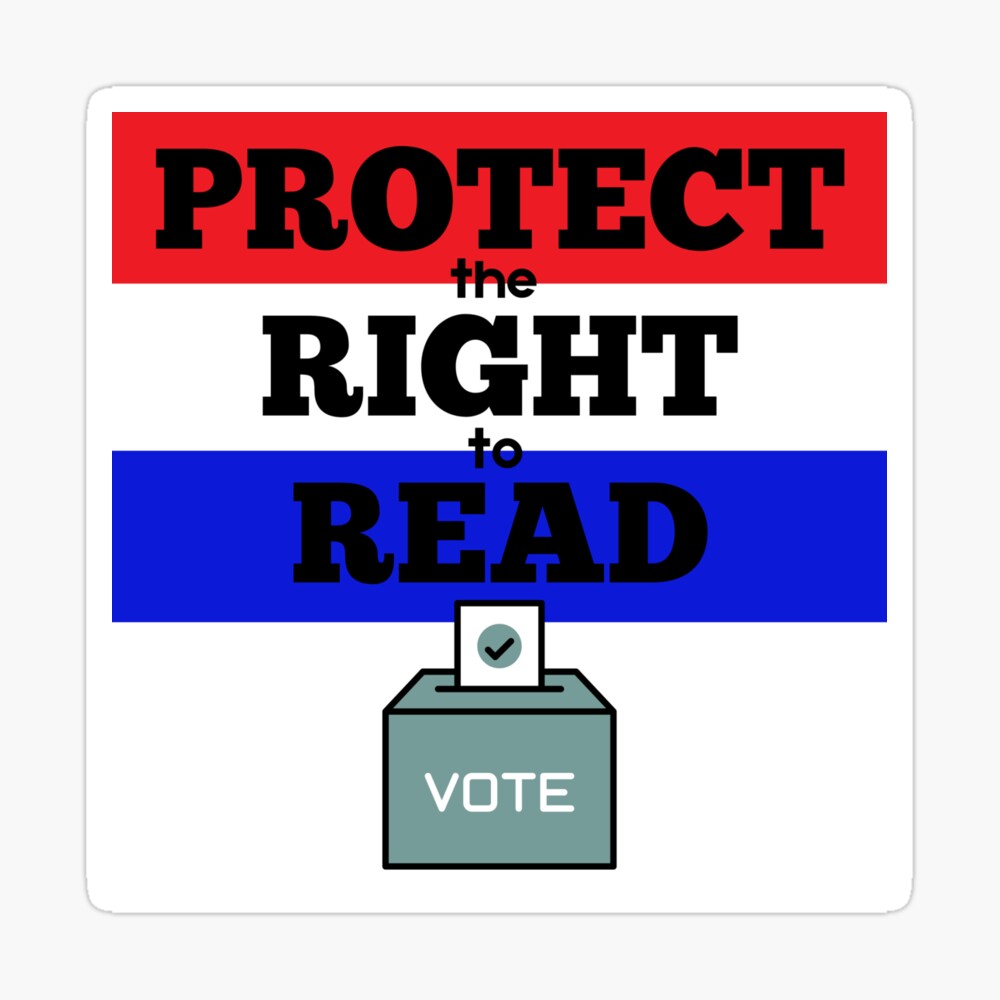Today, I’m pleased to host Laura Cross, author of many ghostwritten books as well as her new Complete Guide to Hiring a Literary Agent: Everything You Need to Know to Become Successfully Published. In January, you posted great questions about ghostwriting (Thanks everyone!), and Laura has some eye-opening answers.
Before we get to them, though, we have a winner for the PDF copy of Laura’s Complete Guide to Hiring a Literary Agent book. The winning question came from Suzanne Pitner. Congratulations, Suzanne! Laura will be emailing you your prize. Enjoy!
And now on to the questions and answers:
DayByDayWriter: How much ghostwriting is done in publishing?
Laura Cross: It’s estimated that more than 80% of published books are ghostwritten.
Karen Strong: I was once approached by a company who wanted me to do some ghostwriting for them, but I wasn’t sure about how much to charge. What is the going rate and what should a writer beginning in ghostwriting charge for their work?
 Laura: Book ghostwriting fees range from $10,000 to $100,00 per project — $10,000 being the very low end and $100,000 usually paid to more established writers (“celebrity” ghostwriters earn $250,000+ per book). Many ghostwriters determine their rates based on how much they can command per hour (based on experience, portfolio and demand for their services). Once you determine your hourly rate, you can translate that fee into a per page rate, a per word rate, or a per book rate (based on how much time it will take to research, organize, outline, write, edit and revise a project.)
Laura: Book ghostwriting fees range from $10,000 to $100,00 per project — $10,000 being the very low end and $100,000 usually paid to more established writers (“celebrity” ghostwriters earn $250,000+ per book). Many ghostwriters determine their rates based on how much they can command per hour (based on experience, portfolio and demand for their services). Once you determine your hourly rate, you can translate that fee into a per page rate, a per word rate, or a per book rate (based on how much time it will take to research, organize, outline, write, edit and revise a project.)
So how do you calculate the time needed for a project? Some writers can write one standard manuscript page in 30 minutes, others require three hours. Some can conduct research and organize a project on the topic of neurosurgery in 80 hours, while others need five months. You need to be aware of your own skills and strengths. Over time, you will have a good understanding of how much time is required for any given project. For instance, I know that for most 200-page prescriptive non-fiction books on the topic of business or finance, I require (remember, each writer’s requirements will be different) about 275 hours of time (around 60 hours of research, organization and outlining time, one hour of writing time per page, and one hour of editing/revising time per 15 pages).
Suzanne Pitner: How does a writer get a ghostwriting gig if he or she doesn’t have a published book yet? Are other writing credits enough to land a job?
Laura: I ghosted more than 30 books before my first “credited” book was published. You don’t need to have a book published under your own name to become a ghostwriter. Create a portfolio based on your magazine and newspaper articles. If you have not yet been published, collect your blog posts and expand them into full articles or book chapters, or use excerpts from your unpublished manuscripts. Define your specialty (business, health/fitness, memoir, etc.) and market specifically to those clients.
Anita Nolan: I’d like to know how to actually get a ghostwriting or work for hire job. I’ve actually done some work for hire, written for a magazine, edited a couple magazines, etc., but I don’t seem to be able to break through. (The WFH work I’ve done has come to me through friends of friends.) I apply for jobs, hear back that they’ll keep my info on file, but never hear anything more. What is the correct way to approach ghostwriting/WFH publishers, and what are the best ways/places to find out about this type of work?
Laura: I’m not sure what you mean by “ghostwriting publishers”? Most traditional publishers and imprints release books written by ghostwriters, though these publishers don’t often hire the ghostwriter directly. Some subsidiary publishers — who market themselves as “self-publishers” — and vanity presses (such as Authors House) offer ghostwriting services to their customers and keep a list of ghostwriters on file to hire on a per project basis. Approaching these types of publishers is not the best route for establishing a successful ghostwriting career or making a decent living — and is not a path I would recommend.
Most of your best ghostwriting projects will be referrals from literary agents working with experts or celebrities who lack the necessary writing skills to produce a compelling book. If you’re looking for quality, well-paying ghostwriting opportunities you need to connect with literary agents. (You can download a free chapter on “Finding and Selecting an Agent” from my book The Complete Guide To Hiring A Literary Agent at www.GetALiteraryAgent.com.) As a ghostwriter, you approach a literary agent just the same way any other aspiring author does.
Donna Maloy: I am assuming that most ghostwriters are paid a flat fee and therefore don’t have a claim on future royalties. But do ghostwriting contracts reserve any future rights at all — say after the acknowledged author passes away?
Laura: All contracts are negotiable, but with a standard ghostwriting agreement, you do not receive any credit or rights — one reason it’s important to be paid well upfront for your writing services.
Wendy Sue Rupnow: How do I try to get credit for ghostwriting and freelance copy and research on a resume? I was recently rejected because some of my freelance could not be verified. Also, I have attached copies of ghostwriting with applications and a few times was questioned… with authorship. Is this something people try to pull?
Laura: Never, ever disclose you are a ghostwriter on a project. It is unethical, and in most cases you put yourself at great risk for a lawsuit and a diminished reputation. Who is going to hire a ghostwriter who doesn’t stay hidden? If a potential client does not understand that you cannot disclose specific information, then you don’t want to work with that client — it’s never worth the risk. If the client is looking to hire a ghostwriter, he is going to have the same “issue” with EVERY ghostwriter he interviews, because no professional ghostwriter can (nor will) reveal authorship. If a potential client is questioning whether you actually wrote the writing you presented, then he’s questioning your integrity and you’re only going to have trust issues with the client throughout the project. Who wants to deal with that? You choose your clients as much as they choose you, and in this case I would say, “Run the other way… there’s many more choices out there.” Respect yourself and know your worth — you’ll attract clients who feel the same about you.
Back to the portfolio question. For portfolio samples, you want to be very careful when using ghostwritten material due to non-disclosure agreements. My contracts specify that I may use up to five pages of ghostwritten content for portfolio purposes, without identifying the “author” or book title. You can also create a list of projects you have ghostwritten identified by topic and type of client — for example, “A how-to entrepreneurial book for a prominent business leader”, “A motivational self-help book for a respected psychiatrist”, “A loyalty-marketing book for the CEO of an Internet company.” Put together a client testimonial sheet to submit along with your samples.
Marion Steiger: How should I go about getting a good ghostwriter to help me finish a non-fiction book based on my daughter’s diaries when she was 14 and had cancer? I’m adding sections throughout the diary on thoughts from our family members and our experiences, so it will be a book for young adults and for adults also.
Laura: Hiring a good ghostwriter can be extremely expensive. My question to you is: what is your goal for the book? If you are planning to acquire a literary agent and attract a traditional publisher, then, in order to have the best chance at landing a book deal, you may need to hire a ghostwriter. If you are planning to set up your own publishing company and release the book yourself, then you may wish to consider completing the content and hiring a good developmental and line editor to polish the material — this path will help you save tens of thousands of dollars.
(Side note: I recommend this route because Marion is writing a narrative non-fiction manuscript. For anyone contemplating writing prescriptive non-fiction, a ghostwriter is not hired until after you’ve landed a book deal from your book proposal and received an advance from the publisher, which allows you to then hire a ghostwriter. Many of my clients hire me to ghostwrite their initial book proposals and then the full manuscript once they have a publishing contract.)
You can find qualified memoir ghostwriters through 2M Communications Ltd. and The Penn Group. I am not an advocate of “bidding” sites for finding quality writers. Yes, you can definitely find exceptional writers on these sites (I’ve found some great clients there myself), but the overwhelming majority of “writers” on bidding sites are utterly inept.
Liz Maxwell: How do you say a polite ‘no’ when someone asks you to ghostwrite for them?
Laura: Well, that depends on why you want to say “no” — are you saying “no” to ghostwriting or “no” to the specific project? If you’re not a ghostwriter and simply have no interest in ghostwriting someone’s book, you can just tell them you’re not a ghostwriter and that the process does not appeal to you. If you are a ghostwriter but have no interest in the particular project, be honest and tell the client, “I don’t believe I am the right fit for your book.” To create a successful book, the client-ghostwriter relationship needs to be right for both parties.
Ivette Ebaen: Whether the work is fiction or non-fiction, how creative is a ghostwriting job since you have to work within a given structure, genre, style — another writer’s work?
Laura: Ghostwriting is a business – I don’t necessarily consider it a creative job, though there are creative aspects. To stay balanced and keep my sanity while working on ghostwriting projects, I try to include time for more creative personal writing projects. When you’re ghostwriting non-fiction books, generally, your clients are not other writers — they’re usually business leaders, entrepreneurs, or experts who lack the skill to craft a compelling book (that’s why they need you). When you move into fiction territory, you encounter a few author-clients. Obviously, narrative non-fiction and fiction ghostwriting are more naturally “creative” than prescriptive non-fiction writing because you’re creating scenes, and dialogue, and turning points, and crisis, and resolution — but at all times, your goal is to remain true to the client’s “voice” and idea. The job of all ghostwriters is to capture the client’s “voice” and effectively get it on paper (especially if you’re ghostwriting a book for an established best-selling fiction author).
DayByDayWriter: Wow! Great information, Laura. I had no idea such a high percentage of books are ghostwritten. And the pay does sound enticing. Anything else you’d like to add?
Laura: I’d just like to say thank you so much for having me. And thanks to your readers for all the great questions. I hope I’ve been able to offer some insights into the world of ghostwriting for writers who are looking to break into the field, and for those who are considering working with a ghostwriter on their projects.
DayByDayWriter: Thank you, Laura.
If you have other questions for Laura, please post them in the comments. You can also find out more about Laura below:
************************************
Laura Cross is an author, screenwriter, ghostwriter, freelance book editor, and writing coach specializing in nonfiction books and script adaptation (book-to-film projects). She writes two popular blogs, www.NonfictionInk.com and www.AboutAScreenplay.com, and teaches online writing workshops www.ScenarioWritingStudio.com/workshops. Her latest book is The Complete Guide To Hiring A Literary Agent: Everything You Need To Know To Become Successfully Published. You can download a free chapter, view the book trailer, read the full table of contents, and purchase the eBook at www.GetALiteraryAgent.com.








17 Responses
Do ghostwriters usually specialize? For instance one author does mainly celeb memoirs, one does inspirational books, etc?
Hi Jodi:
Thanks for your question. Absolutely, writers who specialize are more successful than those who generalize. I specialize in prescriptive nonfiction how-to and self-help titles in business/finance/investing, marketing/promotion/branding, and lifestyle and relationships. I’m known for focusing on creating strong frameworks to present the material (for instance, 5 Steps To…., The 10 Habits of…) My target clients are business leaders, entrepreneurs, speakers, and experts in their field. While other ghostwriters may focus on science or history (their clientele may be professors or scientists or medical professionals) and others may specialize in narrative or memoir (their clients may run the gamut of celebrities, sports figures, or everyday people with a story to tell).
Defining your specialty and knowing who your client is, is an essential component for a ghostwriter’s success.
Best,
Laura
Thanks for the question and answer, Jodi and Laura. More great information!
What an informative interview! I’ve often wondered how this side of the industry works, especially since there are so many celebrity memoirs out there and, no offense, but I didn’t really think they were all writers too! Thanks for the inside peek.
Instructive Q&A’s. Thanks for taking the time to answer questions on ghostwriting in such detail. So many eyeopeners. I had no idea that you can have a literary agent represent you as a ghostwriter. Makes sense, but fascinating nevertheless.
Glad you liked the interview, Sherrie and Rilla. Laura has really given some interesting info. I’m with you guys. I had no idea about this side of the industry. Very eye-opening.
Incredible info. Thanks! This explains why so many big names who jet-set around the world and give speeches and start projects all over the place are able also to publish substantial books. How do most authors interact with ghostwriters: micromanage? or just finesse when project is complete? And do the ghost writers or the “authors” communicate with the pub house editors?
Do you know who prolific James Michener’s ghost writer was? I read the name once but have forgotten. Maybe he had more than one!
Hi Sherri, Rilla, and Esther – thanks for your comments.
@Esther – from my own personal experience as a ghostwriter I have never had a client try to micromanage the book development and writing process – they look to me as the expert to guide them through the process and manage the project. I often work directly with the editor at the publishing house.
Joe Avenick was Michener’s ghostwriter (not very ghost-like when his name is known… though a few select ghostwriters are “out in the open” and some, such as Barbara Feinman, are known due to the controversy surrounding their involvement on projects.)
Regards,
Laura
Thanks so much for this interesting interview. I’ve learned quite a bit. Like Rilla, I never realized that agents represent ghostwriters. I can’t wait to read your new book, Laura.
Best regards,
Suzanne
80% seems very high. Who’s estimate is that? And how was it acquired?
Hi Stephen:
Thanks for your question. Hard statistics on ghostwriting don’t exist (that I’m aware of) but the 80% figure is the estimate from “book insiders” – publishers and literary agents – and has been published in Publishers Weekly and New York Times Magazine. When discussing how many books are ghostwritten with publishers and agents, the response I often receive is “that sounds about right”.
85% of books published each year are non-fiction. Who is writing these books? You can assume that almost 100% of autobiographies, memoirs, how-to, and self-help books from actors, sports celebrities, politicians (Sarah Palin, Ted Kennedy), television gurus (Dr. Phil), musicians, and media-darlings-of-the-moment (The Biggest Loser) are ghostwritten. As are almost all the books “by” business leaders, entrepreneurs, experts, motivational speakers, fitness/health professionals, doctors, scientists, historians, and professors.
Unless the author of a non-fiction book is a writer by trade, it’s fairly certain he/she did not write his/her book. Even reporters – who are trained journalists – often don’t write their own material (Dan Rather, Chris Matthews, etc.)
Ghostwriting is a major industry – and from my experience with publishers they are always happy to have a ghostwriter working on a project. When they have someone who understands what it takes to develop a bestselling book, and has experience doing it – it makes their jobs easier and ensures a better product.
Regards,
Laura
Thanks for answering, Laura.
I must say, however, that I still think the numbers are suspect. Textbooks make up a great portion of the non-fiction published. Those are not likely to be ghostwritten, as they are rarely authored by celebrities.
And I started in publishing as a proofreader/copy editor in 1978. I began with a tax service publisher–they also published books. All of their books were written (with author credit) by local tax attorneys and CPAs. I think my experience just seems to ring more accurately than those “book insiders” estimates.
I mean, I could be wrong, but it doesn’t feel that way.
@Stephen
Well, you’ve got a few years of experience on me (I started in the industry in 1992), but I’m discussing commercial trade publications – not textbooks or self-published books. The 80% figure has been “thrown around” by industry insiders for many years – but as I mentioned, no hard statistics exist.
Regards,
Laura
Superb, honest advice from a pro. I great interview.
Thank you!
Enormously helpful, thank you. I was approached to ghostwrite two books–a new endeavor for me–and was wondering how to interview the client to see if we’re a right fit for each other. Very good information here.
Glad you like it. Thanks
Comments are closed.